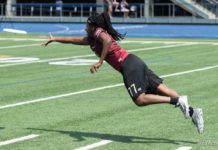Ultimate Canada Magazine – February 26, 2019
Black History Month takes place in Canada every February. Canadians are invited to participate in Black History Month festivities and events that honour the legacy of Black Canadians, past and present. You can find more information about the month here.
Our sixth profile celebrating Black History Month features Johanna Elias, a long-time player in the Canadian Ultimate community who has competed with teams at the highest levels across the country.
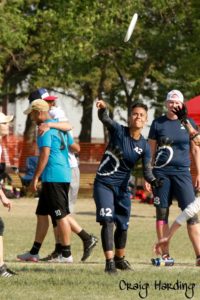
Ultimate Canada: How did you get started in Ultimate?
Johanna Elias: I owe my introduction to ultimate to my significant other at the time, who happened with play for a wonderful league team called “Jonathan”. Having come from a sporting background, it took literally one catch for me to fall in love with the sport. Luckily, the captain of the Jonathan (Thomas Meyers), invited me to join the team. My significant other moved on from playing ultimate, I chose to continue to play, ultimately (no pun intended) moving on to another wonderful league team called 4D, and then finally began touring.
UC: How has your experience been, being a player of colour in the community?
JE: My experience as a player within the community has been incredibly positive for a large part of my career. In fact, I would say that the ultimate community, as a whole, reflects the diversity and inclusion of what it means to be a Torontonian. However, I will also say that I have had a few negative experiences that have not left my memory and are absolutely not representative of the Toronto ultimate community as a whole.
UC: Do you have any thoughts on how we can increase participation from the Black community in Ultimate?
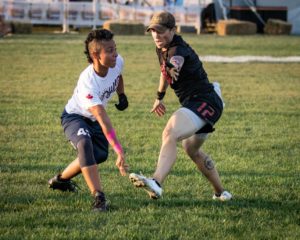
JE: To be honest, I have spent many a minute pondering the same question. Personally, it strikes me as odd that there is so little representation of, in my case, black female athletes on so many of our elite ultimate teams. So, to come back to your questions of “what can we do to increase participation from the black community?” Well, to explore that question, we need to recognize and understand many complex variables that affect the participation of minorities in sport (a few of which I would offer for consideration).
Firstly: Understanding socioeconomic factors.
While many would like to believe that ultimate is a sport that requires just a frisbee, and a relatively flat patch of grass, it is also requires a fair bit of disposable income. Organizational fees, team/player fees, equipment fees all add up to quite the expense. Add to that expense, the cost of living in the City of Toronto and that access to disposable income becomes even more critical in sport participation. I do believe it would be beneficial, if Ultimate Organizations could explore subsidization of organizational fees for those with limited income.
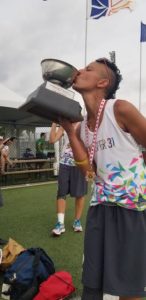
Secondly: Expanding our involvement directly in under-resourced and marginalized communities, as well as schools.
There are many great initiatives that are currently in play within the Ultimate community. Youth clinics, as well as skill development clinics, have done a lot to increase the interest in our sport. However, those able to participate, are likely to have a parent that plays, or, coming back to the socio-economic factor, have the resources to join the Toronto Ultimate Community. I would love to see the development of an Ultimate organization, whose focus is to create reach-out programs, and foster relationships with marginalized communities within Toronto. These initiatives could take the form of partnerships with organizations, community centres, or religious organizations that have an established presence within those neighbourhoods. Forming and fostering such relationships will allow us the opportunity to bring our sport directly to those who would not otherwise have access to our sport.
I also believe that attempting to develop a learn to play program with Toronto school boards will provide further opportunity for growth and participation from within the black community. For example, in the fall of 2018, I was fortunate enough to be involved in the inaugural season of a girl’s league within the Toronto District School Board. Part of my involvement included coaching, the other was being involved in a skills clinic for those female athletes. During that clinic, I experienced, first hand, the profound benefit of being a visible minority mentor to young, black, female athletes. I was bombarded by questions of my own playing career, and where they, themselves, could play ultimate. Which plays into my third point: Visibility.
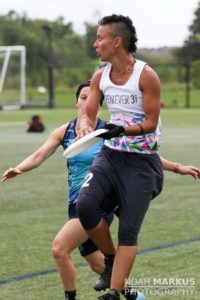
Unlike USA Ultimate, we do not spend much time showcasing our beloved sport to the greater public in Canada. In fact, despite its record growth in the past decade, Ultimate remains a minority sport. We have always prided ourselves on being an “underground” sport and so many are introduced to sport by chance, or word of mouth. This has worked wonderfully in allowing us to develop sporting ideology that is unique, however, it has put us at a disadvantage when it comes to attracting athletes to play our sport. We are in direct competition with other marketed sports, such as basketball and soccer. These sports also have the advantages of being integrated into school sporting programs, as well as professional leagues that are showcased on television, etc.
Now, take a moment to imagine being a minority within a minority. Therein lies another issue to address: You simply can not aspire to be, what you do not see. It also creates a cyclical challenge where, lack of visibility, plays into lack of participation, which plays back into the lack of visibility etc. Directing our focus into expanding our sport through the media and, in the same breath, ensuring that there is representation of all backgrounds and gender identities, will benefit the sport on all levels.
UC: Do you have anything else you would like to add?
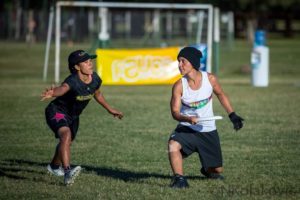
JE: I would like to add that I do realize that such initiatives require tremendous investment in terms of financial aid, and volunteer hours. I know that Ultimate organizations across Canada have done so much to spread the love of our sport and appreciate the countless (often thankless) hours of work that have gone into doing so. There is, and always will be more work to be done. Make sure to get involved in your local community!
I would also like to applaud organizations such as Reach Up and the Toronto Mennonite New Life Centre for introducing and using Ultimate as a means of inclusion, and youth engagement in both Immigrant and under-resourced communities. I would encourage everyone to research these organizations yourself and support their activities in any way you can. I know both organizations are volunteer run, so if you are able to lend them your time, they will surely appreciate your efforts. I would also like to commend Rob McLeod on his Un-plugged initiative. While these programs may not focus strictly on black participation, their efforts to bring Ultimate to children and young adults of various backgrounds will prove beneficial to the continued growth of sport, and an important platform on which other out-reach programs can base their development on.
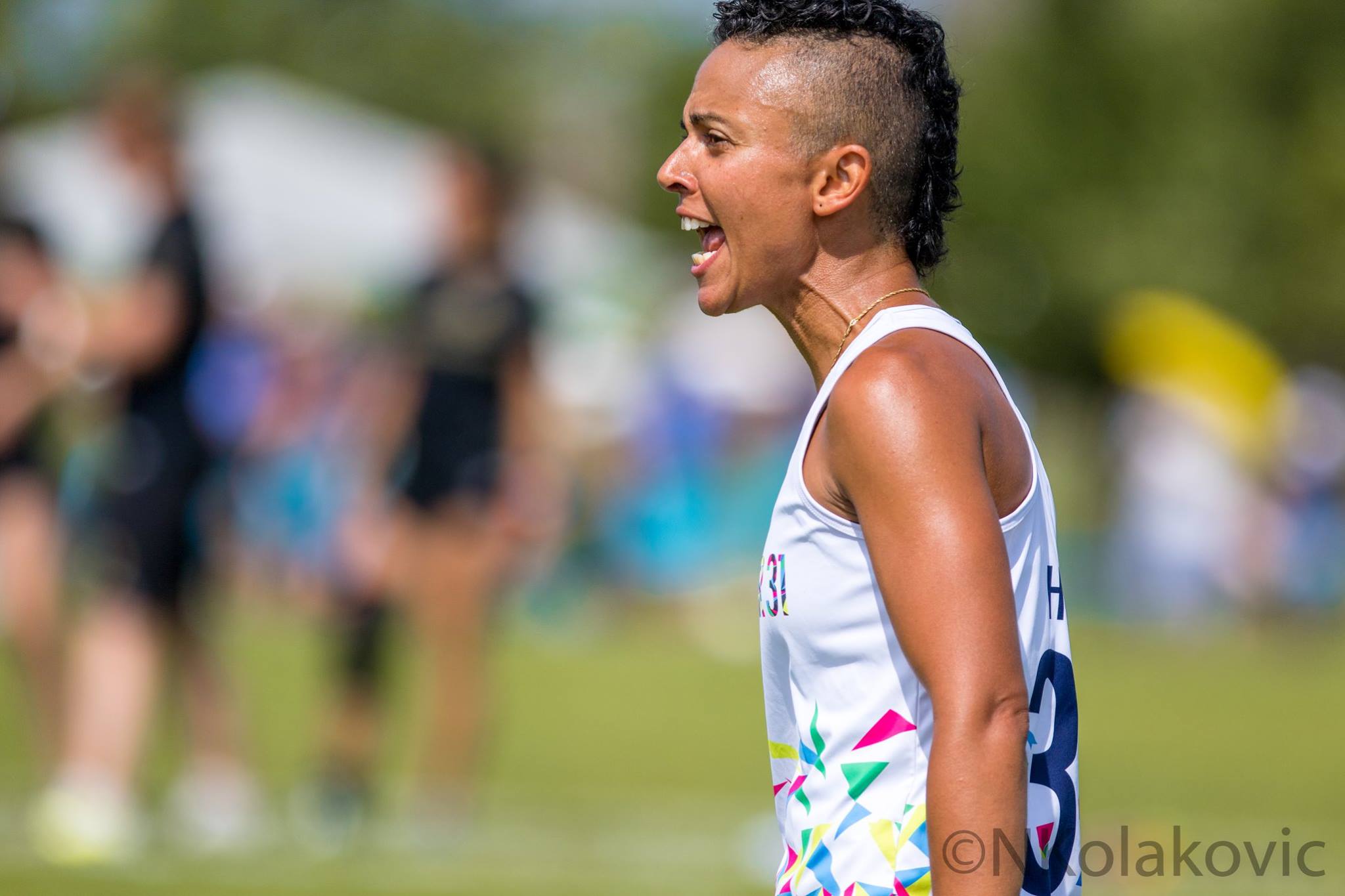
![International Women’s Day 2019 [Presented by VC Ultimate]](/c/wp-content/uploads/2019/03/unnamed-218x150.jpg)
